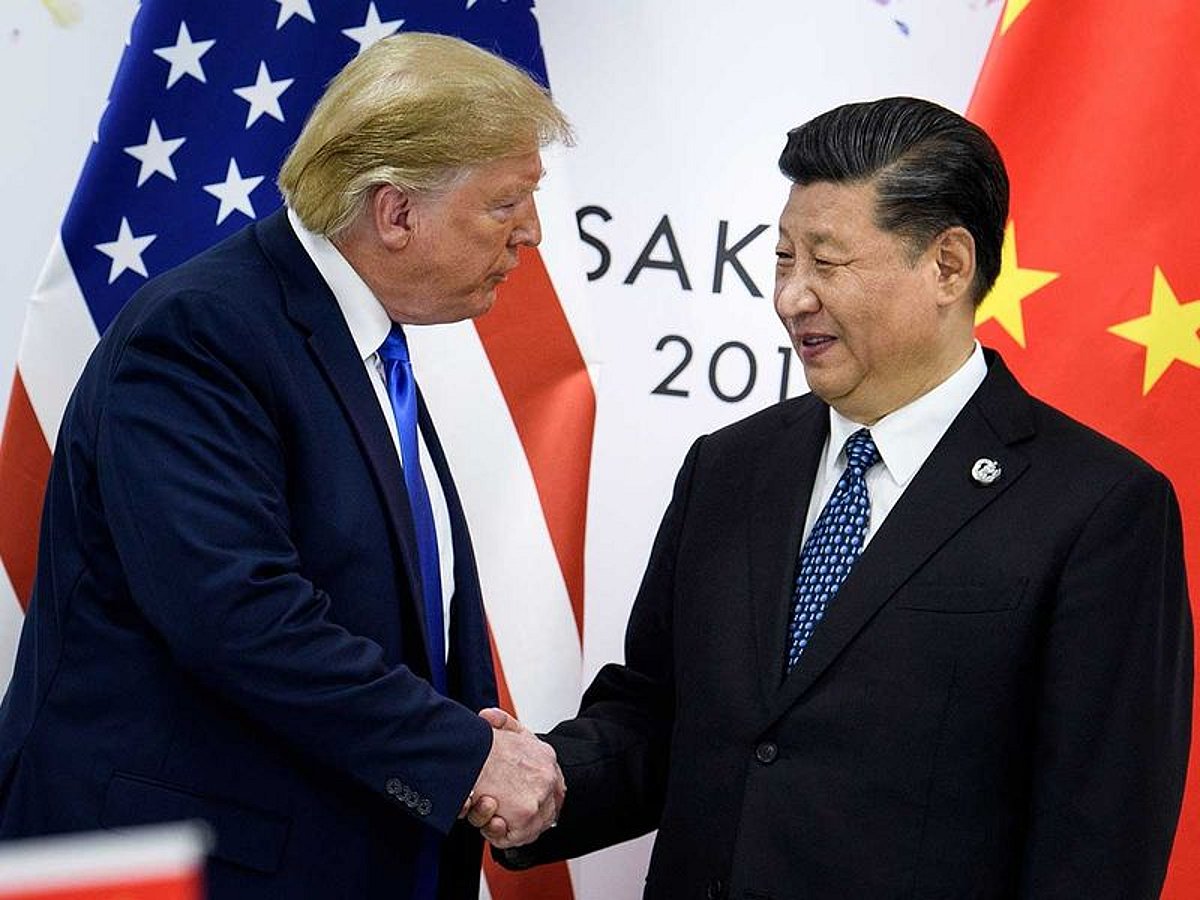Trump Optimistic About Upcoming China Trade Deal
In a recent statement, President Donald Trump expressed his belief that a significant trade agreement with China is on the horizon. This optimism comes amid ongoing tensions related to tariffs and the critical issue of rare-earth minerals, which are vital for various industries.
Current Trade Tensions
On October 20, 2025, Trump addressed reporters at the White House, stating, “I think we’re going to end up having a fantastic trade deal with China.” This declaration comes as the trade war between the two nations continues to escalate, characterized by a series of tariff increases and China’s restrictions on the export of essential minerals.
The backdrop of Trump’s optimism includes the imposition of tariffs that have reached as high as 57% on Chinese imports. These tariffs have prompted China to respond with its own export controls on rare-earth minerals, which are crucial for electronics and military applications. In a move to pressure China, Trump threatened to increase tariffs on Chinese goods to as high as 157% if a trade agreement is not finalized by November 1.
Strategic Partnerships
On the same day, Trump met with Australian Prime Minister Anthony Albanese to announce a $1 billion investment aimed at processing rare-earth minerals. This partnership is part of a broader strategy to reduce reliance on Chinese supplies and strengthen alternative supply chains for these critical materials.
The trade conflict has had significant repercussions for U.S. agricultural exports. Chinese retaliatory tariffs have severely limited imports of American farm products, particularly soybeans, which have historically been one of the largest exports to China. Trump acknowledged the impact of these tariffs, stating, “They stopped buying our soybeans because they thought that was punishment. It is punishment to our farmers, but we’re not going to allow that to happen.”
Market Implications
While the trade war continues to create challenges across various sectors, including agriculture and technology, Trump’s confident assertion of a forthcoming deal aims to instill market confidence and demonstrate a willingness to negotiate. However, analysts caution that the existing tariff measures and geopolitical tensions surrounding rare-earth minerals pose significant obstacles to a swift resolution.
The President’s remarks highlight ongoing efforts to address complex trade disputes with China, with rare-earth minerals and tariffs at the forefront of negotiations. The new partnership with Australia signifies a strategic shift towards diversifying critical supply chains, while agricultural sectors remain hopeful for relief from retaliatory tariffs as the November deadline approaches.
FAQs
What are rare-earth minerals, and why are they important?
Rare-earth minerals are a group of 17 elements essential for manufacturing high-tech devices, including smartphones, electric vehicles, and military equipment. Their strategic importance has made them a focal point in U.S.-China trade relations.
How have tariffs affected U.S. agricultural exports?
Tariffs imposed by China in response to U.S. trade policies have significantly reduced imports of American agricultural products, particularly soybeans, which has adversely affected U.S. farmers and the agricultural sector.
What is the significance of the U.S.-Australia partnership on rare-earth minerals?
The partnership aims to enhance the processing and supply of rare-earth minerals outside of China, thereby reducing dependency on Chinese exports and strengthening supply chains for critical materials.
Conclusion
President Trump’s recent comments reflect a mix of optimism and strategic maneuvering in the ongoing trade negotiations with China. As the November deadline approaches, the focus remains on overcoming significant hurdles related to tariffs and rare-earth minerals. The collaboration with Australia signals a proactive approach to securing alternative supply chains, while agricultural sectors await potential relief from trade tensions.
The ongoing trade negotiations are not only pivotal for U.S.-China relations but also have broader implications for global trade dynamics. As countries around the world monitor the situation, the outcomes could influence international markets and trade policies, particularly in sectors reliant on rare-earth minerals and agricultural exports.
Moreover, the geopolitical landscape surrounding trade is evolving, with nations seeking to establish their own supply chains to mitigate risks associated with reliance on any single country. This shift may lead to increased collaboration among allies and a reevaluation of trade strategies, as countries aim to secure their economic interests amid rising tensions.
As the deadline for a potential agreement approaches, both sides face mounting pressure to reach a resolution that addresses the complexities of tariffs and resource management, which could ultimately reshape the future of trade relations between the U.S. and China.
Also Read:
Tensions Escalate in Gaza Amid Ceasefire Violations







